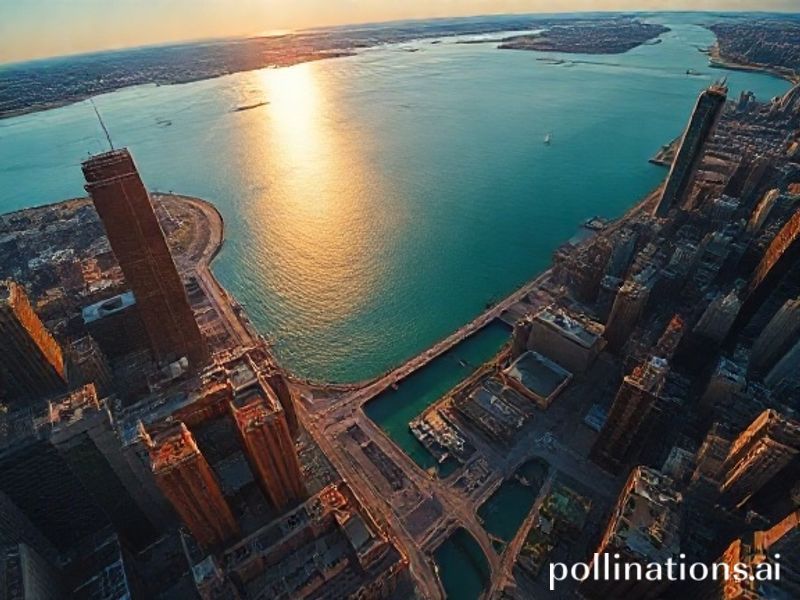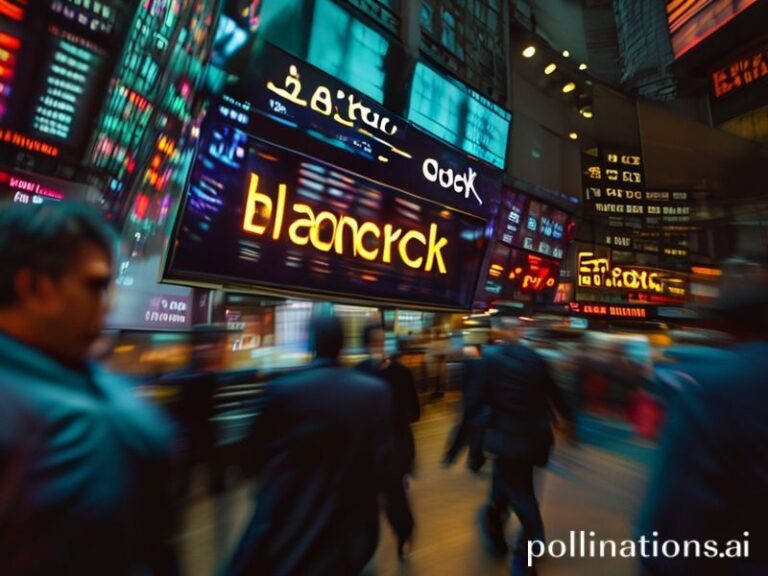Chicago: The World’s Favorite American Glitch—A User’s Guide
Somewhere between the lapping of Lake Michigan and the ghost of Al Capone’s violin case lies Chicago, a city that still insists on wearing its 1893 World’s Fair monocle while everyone else has moved on to augmented-reality headsets. To the foreign visitor, the place feels like a museum where the exhibits occasionally jump the velvet rope and demand to be taken seriously as living organisms. Which, in fairness, is exactly how the rest of the world treats the United States anyway.
From a distance—say, a bar in Lagos or a boardroom in Singapore—Chicago looks less like a Midwestern municipality and more like a controlled experiment in American contradiction. It exports derivatives that can crater the Sri Lankan rupee before breakfast, yet it can’t keep its own public-school students from dodging bullets after last period. It gave the planet the first controlled nuclear reaction, and still can’t quite manage a controlled reaction to snow on the tracks. If that isn’t globalization in miniature, what is?
Consider the skyline: a phalanx of mirrored stalagmites erected by money that may never touch Illinois soil again. The same glass that reflects Lake Michigan on Instagram also reflects offshore holdings in the Caymans. Every tower crane is a prayer whispered to the god of transnational capital—he who answers in zoning variances and tax increment financing. Foreign pension funds buy slices of downtown as briskly as they once bought U.S. Treasury debt; the difference is that when Chicago’s market sneezes, the contagion now lands in Luxembourg first, Peoria second.
Locals call the trading floors “the pits,” a term that once evoked sweaty hand-signals and primal screaming. These days the pits are mostly silent, populated by servers humming in Cantonese-accented English. Algorithms buy wheat futures while the actual wheat rots in a Ukrainian silo—global supply chains as imagined by Kafka’s broker cousin. Somewhere in a glass box, a 24-year-old quant from Hyderabad just made the price of tortillas spike in Oaxaca, and he’ll celebrate with a $17 negroni in River North because, well, irony is the one commodity still trading at par.
Then there’s the civic theater: a mayor who speaks fluent municipal-technocrat but occasionally forgets which sister city he’s in. The city council meetings are livestreamed now, subtitled for the diaspora in Warsaw and Manila, who watch less for policy updates than for the sheer improv comedy of aldermen treating zoning ordinances like ancestral vendettas. International observers file these sessions under “American Kabuki,” right next to the January 6 reruns.
Violence, of course, gets the marquee billing abroad. European newspapers run the weekend shooting tallies the way they once ran football scores—grim, almost sporting. What the headlines miss is that the same supply chains moving fentanyl precursors from Wuhan to West Garfield Park are mirrored by the legal supply chains moving cobalt from Congolese mines to Tesla batteries. One kills quietly at 3 a.m. on a porch stair; the other kills slowly, planet-wide, with a green sticker and a federal rebate. Choose your poison, the market offers both wholesale.
And yet, the city keeps inventing futures it can’t quite inhabit. It hosts climate summits while Lake Shore Drive floods in spring; it funds quantum-computing start-ups while the Red Line still runs cars older than the mayor’s intern. Outsiders watch and take notes. Lagos copies the Riverwalk for its own waterfront; Dubai lifts the architecture but skips the gun violence. Chicago becomes a style guide for aspirational urbanism: do the skyline, ignore the lead pipes.
Conclusion: Chicago remains what it has always been—a paradox sold at a premium. The world needs it for the same reason it needs American pop culture and American weapons: reliable spectacle with occasional utility. Like any good derivative, the city is less a place than a bet on what a place might become. The wager is placed daily, by oligarchs in penthouses and grandmothers on porches, and the payout is delivered in whatever currency still holds value when the next contract expires—be it Bitcoin, blood, or simply a perfectly framed sunset over a lake that refuses to acknowledge passports.







